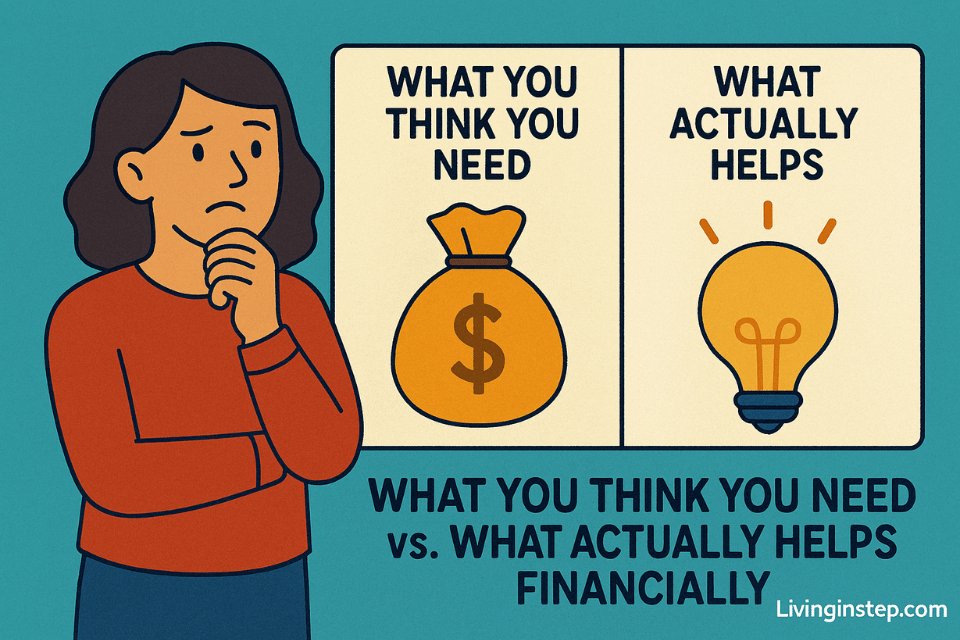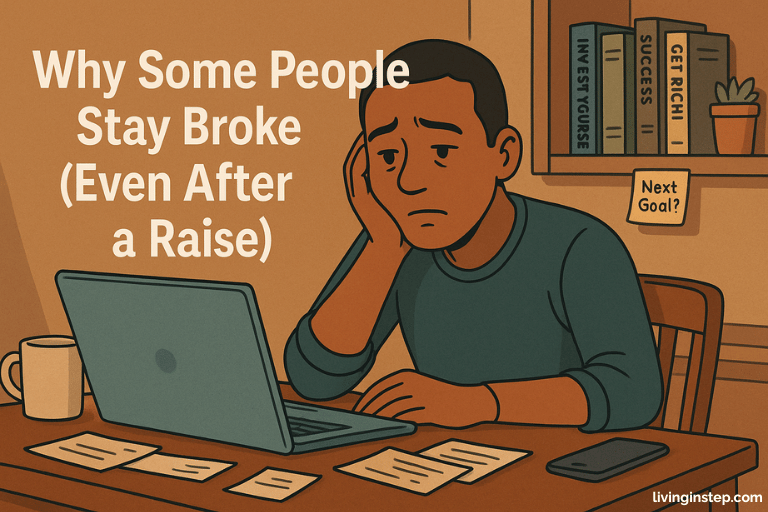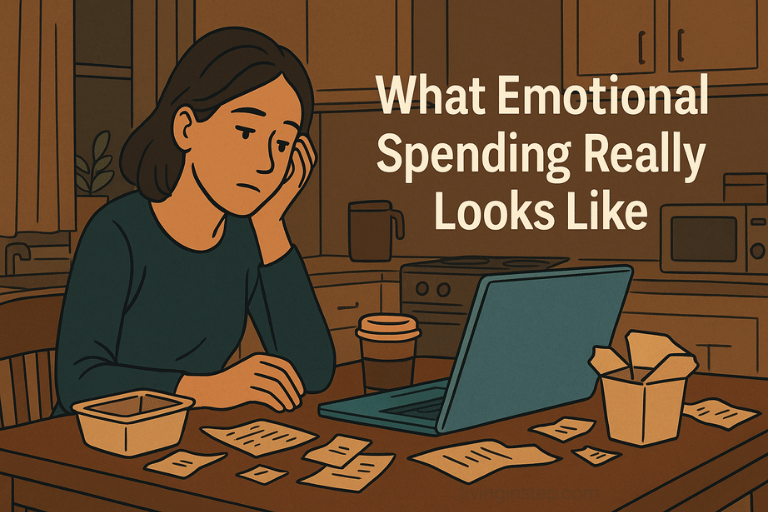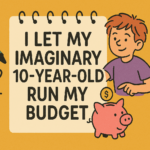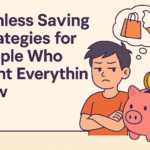When you’re trying to “get better with money,” it’s easy to chase the wrong things.
Not because you’re careless
Not because you’re impulsive
But because everything you’ve heard about financial success are always loud opinions, filtered lifestyles, and someone else’s version of progress
And that’s how the disconnect starts.
Because what we think we need to get ahead financially
Often has very little to do with what actually works
More income doesn’t automatically mean more stability
This is one of the biggest misconceptions out there.
And it makes sense—because when money feels tight, the obvious solution is: earn more.
But studies have shown that most people increase their spending right alongside any income bump.
According to a report from the Federal Reserve, nearly 40% of Americans earning over $100,000 a year still live paycheck to paycheck.
So if you’ve ever thought,
“Once I make X, everything will get easier,”
You’re not alone
But more money without better money habits just increases the stakes—not the security
A budget doesn’t fix your money—it shows you where it leaks
There’s a belief that the act of budgeting is what changes things.
That if you find the right app
The right method
The right spreadsheet
You’ll finally stay on track
But the truth?
Most people abandon budgeting not because it doesn’t work
But because the method doesn’t match the life they’re actually living
They set ideal numbers
They map out perfect months
Then feel defeated when it all goes sideways by week two
What actually helps?
A system that works on your worst day of the month—not your best one
Financial success doesn’t look like what it costs
Let’s talk about appearances.
You’ve seen people who “look” successful
They’ve got the car
The house
The vacations
But behind the scenes?
That car is leased
The house is heavily mortgaged
And those vacations are financed with rewards points and debt they’ll worry about later
The data backs this up:
- 70% of lottery winners go broke within a few years
- Over half of American credit card holders carry a balance month to month
- And globally, household debt is rising faster than income in many developed countries
So what we assume is success
Is often just well-managed perception
Real financial strength is quieter
Simpler
And usually built off choices most people would scroll right past
Being “bad with money” usually just means being overwhelmed
This one gets internalized fast.
If you’ve ever thought,
“I’m just not good with this stuff,”
Know that it’s probably not true
What’s more likely?
You’ve had too many mixed messages
Too much noise
And too many moments where your effort didn’t line up with results
That doesn’t make you bad with money
That makes you human in a system designed to confuse and distract you
What actually helps?
Slowing down
Setting boundaries
Letting go of the shame that says everyone else has this figured out but you
And now might be the part where your brain says: “So that’s the answer?”
It’s tempting to stop reading here
To think you’ve heard the takeaway:
“Focus on the basics. Drown out the noise. Got it.”
But slow down for a second
Because the reason people don’t make these shifts isn’t that they don’t understand them
It’s that they underestimate them
They believe progress has to feel big
Look impressive
Or happen fast
So when the real work shows up—quiet, unglamorous, slow—they dismiss it
Final thought
Most people overestimate what change is supposed to feel like
And underestimate the power of doing small things, consistently, without drama
What you think you need:
- A bigger paycheck
- A better app
- A different system
What actually helps:
- A pause before you spend
- A habit that doesn’t collapse under stress
- A decision to leave some money untouched for once
And none of that is magic
It’s just steady effort that adds up over time
Which is exactly what people mistake for luck when they see someone finally getting ahead
Note: This content is for entertainment purposes only and is not financial advice. Please consult a qualified financial advisor for guidance specific to your situation.

